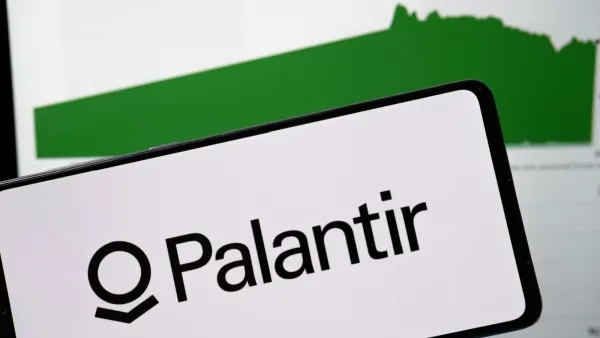Notion: From Sneaking Into Offices to Shaping AI's Future: The Untold Story of Notion's Evolution

Disclaimer:
This blog post was auto-generated by Accunote AI, aiming to make audio knowledge sharing more accessible. While we strive for accuracy, please note that AI-generated content may contain minor inaccuracies. The original ideas and insights belong to their respective creators: @Notion.
Notion AI Business Overview
Founders' Journey and Early Days
- Simon joined Notion at 20 after meeting Ivan through Toby Shockman, quitting his internship to work in San Francisco. Ivan was impressed by Simon's talent and thoughts on visual programming languages. They initially had to sneak Simon into their office due to his age. Ivan met Simon's family to assure them about Simon dropping out of college to join Notion.
- Notion defines co-founders as those who go through ups and downs together. Simon, Ivan, and Sam solidified their co-founder status by coding through some of the darkest days. Both Simon and Ivan demonstrate high levels of obsession and attention to detail in their work. Simon intensively read Steve Jobs' biography, while Ivan spent months perfecting website typography.

Product Evolution and Early Challenges
- Notion's initial idea was to create a better programming environment, combining Webflow and Figma concepts to empower more people to program. After 2-3 years, they realized most people prefer off-the-shelf solutions, leading to a transition from a computing tool to a productivity tool, while maintaining the ethos of hiding computing power in everyday productivity software.
- The company faced several years without product-market fit, making technical and product mistakes due to lack of expertise. They persevered through 3-4 different approaches without giving up. Simon and Ivan's ability to remain positive and get excited about new ideas helped them through low points. Early version gained traction in 2016-2017, focusing on building a better productivity tool, text editor, and document/knowledge management system backed by a graph data structure.
Recruiting and Leadership Philosophy
- Notion employs a stringent recruiting process, following the principle "when in doubt, say no." This approach emphasizes the importance of being certain about new hires, considering the high cost and impact of each addition to the team. The founders, particularly Ivan, review every new employee and their references, treating each hire with the same care as selecting a personal item. The company's leadership emphasizes the importance of perseverance and adaptability in running a business. They view entrepreneurship as a marathon with endless new challenges. The key is to maintain enthusiasm by focusing on exciting aspects each day, week, and month, without getting bogged down by past problems.
- This approach involves starting anew regularly, being willing to discard and rewrite code when necessary, and accepting past mistakes without ego. The company culture values the ability to continuously refresh and improve. Notion's co-founders had different approaches to product development. One co-founder, likely Evan, was often hesitant to release the product, feeling it needed more refinement. The other co-founder was more inclined to push for release, believing it was "good enough" to launch. This dynamic highlights the balance between perfectionism and timely product launches in Notion's early days.
AI Integration and Development
- In 2019, Notion received a demo of GPT-3 but wasn't initially impressed due to its limitations. The company continued monitoring AI developments closely. In early 2022, they began experimenting with image models like DALL-E and Midjourney. Around October 2022, they tested an early version of GPT-4, which demonstrated a significant improvement in following complex instructions and comprehensive knowledge. During a company retreat in Cancun, Notion's leadership recognized the potential of AI and immediately began working on prototypes. This decision to invest in AI development inspired the company to focus more on integrating AI into their products.
- AI is crucial for Notion's future as it can understand information and perform knowledge work. Language models can handle mundane, repetitive tasks, allowing Notion to build tools that assist with various information and knowledge-related work. The introduction of language models as a new "computational engine" is changing how Notion thinks about products and how the industry approaches knowledge work and software development.
Company Culture and Values
- Notion went through a lengthy process of defining company values at 30-40 employees. The process involved multiple revisions to balance current practices with aspirational goals. They drew inspiration from other companies, such as IKEA's "10 Commandments" and adapted concepts like "revenue is a resource, not the goal" to fit Notion's context. The company's values underwent several iterations, moving from highly aspirational to more authentically representative of Notion's identity.
- Notion's engineering culture includes principles like "tend to the garden," encouraging engineers to fix small issues while working on larger tasks. The company promotes lack of rigid boundaries, allowing anyone to edit any part of the code to foster ownership and efficiency. Notion aims to remove boundaries between skill sets and roles in their team structure, encouraging multiple skill sets for faster and more creative problem-solving.

Products Aspect
Product Development Philosophy
- Notion emphasizes the freedom to not ship until finding a good solution. While setting target dates, the priority is on getting the product right, even if it means pushing back release dates. This approach allows effective navigation of complex tradeoffs in product development. The company's approach involves deeply understanding problems and affected people, while considering solution spaces. They break down problems into components and express solutions as flexible primitives, aiming for broadly useful solutions that address multiple personas simultaneously.
- Notion's initial user base was primarily in engineering, product, and design fields. The block model was designed with engineers and designers in mind, featuring drag-and-drop functionality and system-building capabilities. However, the company aspires for ubiquity - creating a tool usable by anyone worldwide. While the product may have a technical vibe due to founders' backgrounds, they intentionally avoid building features explicitly constraining its use to specific groups.

Startup Support and Content Creation
- Notion has a dedicated program for startups called "Notion for Startups". The company expresses a deep care for startups and founders, aiming to inspire them with stories and experiences. They encourage interested parties to visit notion.com/startups to learn more about how they are supporting the startup ecosystem. First Block is described as a Notion series featuring founders and executives from leading companies. These guests share their experiences navigating the early stages of their startup journeys and the lessons learned. The series is hosted by Akshay Kutari, Notion's co-founder and COO.
Product Development Challenges
- The speaker admits to being obsessive, particularly about the company's marketing site. They recall spending months working on the typography of the website, which led to arguments about product readiness. This reveals the intense focus on details in Notion's early stages, even to the point of potentially delaying product development. The team explores tradeoffs to find a solution that best satisfies their priorities, although they acknowledge that perfect solutions are rare. These tradeoffs include UX balancing familiarity and simplicity for users, UI making decisions about visual elements within limited space, and technical determining what's buildable and what needs to be real-time.
Channel Aspect
Marketing and Customer Acquisition
- In early days, Ivan spent considerable time crafting a tweet storm about relational database history, from IBM papers to Oracle's creation, reflecting founders' commitment to depth and quality in communications. Notion launched version 1.0 on Product Hunt, the first platform where they pushed the product. Through interactions with users via product and support tools, they realized people were finding true value and had similar tastes as creators.
- Notion launched on Product Hunt, immediately gaining a global user base. Initially, they didn't localize the product or optimize server locations, focusing on creating a high-quality product with open distribution. The internet-based approach allowed for global reach, with the English-speaking startup community helping overcome language barriers. The company provided 24-hour support to address time zone differences.
Near-term Strategy
Customer Engagement and Feedback
- In early days, the Notion team, including founders, spent significant time on customer support, maintaining close communication with users, quickly addressing issues and incorporating feedback. This hands-on approach fostered strong community and customer loyalty. The team designed their workflow to closely connect support, engineering, and product development, allowing rapid problem-solving and feature improvements.
- Notion developed a system to efficiently handle and analyze user feedback as volume grew. They implemented tagging and aggregation methods to organize and prioritize user input. This approach allowed quick understanding and addressing of user needs without dedicated product ops or research teams. When prioritizing new features, they could access extensive user research by reviewing tagged conversations, enabling effective problem-solving.
Team
Leadership Daily Routines
- Ivan's daily routine includes drinking vitamin water, exercising, showering, and commuting to work. His workday consists of meetings and discussions, followed by deep work, thinking, and writing in the evenings. He also dedicates time to reading before sleep and focuses on deep work during weekends. Simon's routine involves strength training or going directly to work after showering. He is selective about attending meetings, focusing on those where he can add value. Simon spends a significant portion of his day coding and working with the team. In the evenings, he unwinds by spending time with his wife and reading before bed.
Additional Info
AI Development Tracking Strategies
- Staying updated on AI advancements requires maintaining curiosity and excitement about the field. This involves regularly checking social media platforms like Twitter for new developments, while also taking breaks to avoid burnout. Reading books and exploring diverse information sources helps maintain a balanced perspective on AI progress. The approach emphasizes the importance of multiple viewpoints and connecting different ideas in understanding AI developments.
AI Product Development Approaches
- The AI field's rapid evolution necessitates an exploratory approach to product development. Experimentation and creativity are highly rewarded when working with language models, as there are many unexplored possibilities. The process often involves trying out various ideas and techniques, as it's difficult to predict what will work without empirical testing. This approach aligns with the career development insight that values seeing different versions of truth and having diverse perspectives over raw intelligence.
Career Development Strategies in AI
- Career development in AI emphasizes the importance of multiple viewpoints and connecting different ideas. This approach values seeing different versions of truth and having diverse perspectives over raw intelligence. Referencing Alan Kay, a computing pioneer, it's suggested that perspective is worth significant IQ points. Creativity is seen as the result of consciously changing one's viewpoint to discover new solutions. The ability to be self-aware of one's perspective and intentionally alter it is considered crucial for innovation and problem-solving in one's career in the AI industry.




